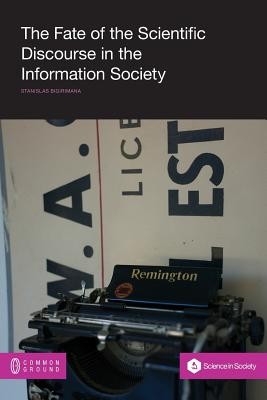
- We will send in 10–14 business days.
- Author: Stanislas Bigirimana
- Publisher: Common Ground Publishing
- Year: 2010
- Pages: 84
- ISBN-10: 1863357416
- ISBN-13: 9781863357418
- Format: 15.6 x 23.4 x 0.4 cm, minkšti viršeliai
- Language: English
- SAVE -10% with code: EXTRA
The Fate of the Scientific Discourse in the Information Society (e-book) (used book) | bookbook.eu
Reviews
Description
The hegemony of the scientific discourse was based on the discipline of the medieval synthesis. The progress of Newton's physics and the decrease of the power and the influence of the Church prompted this decline. Therefore, revelation, tradition and (religious) authority were no longer suitable foundations of knowledge. Genuine knowledge, in the scientific era, was to be founded on human reason and proved through observation, reasoning and experimentation. Through a mixture of Newtonianism, Darwinism and positivism, scientific principles and methods were applied to human affairs. However, the fate of the scientific discourse is uncertain for two reasons. First, there is an increasing awareness that some assumptions of science are applicable to only a small portion of the universe. Moreover, human interaction enhances aspects of purpose, value and meaning that cannot be investigated and formulated in physical terms. The ongoing information revolution is a fertile ground for new ways of thinking and styles of organization that transcend the limitations of the Cartesian tradition. In the information society, the fate of the scientific discourse is uncertain. There is an epistemological shift that embodies power comparable to the scientific revolution more than three hundred years ago.
- Author: Stanislas Bigirimana
- Publisher: Common Ground Publishing
- Year: 2010
- Pages: 84
- ISBN-10: 1863357416
- ISBN-13: 9781863357418
- Format: 15.6 x 23.4 x 0.4 cm, minkšti viršeliai
- Language: English English
The hegemony of the scientific discourse was based on the discipline of the medieval synthesis. The progress of Newton's physics and the decrease of the power and the influence of the Church prompted this decline. Therefore, revelation, tradition and (religious) authority were no longer suitable foundations of knowledge. Genuine knowledge, in the scientific era, was to be founded on human reason and proved through observation, reasoning and experimentation. Through a mixture of Newtonianism, Darwinism and positivism, scientific principles and methods were applied to human affairs. However, the fate of the scientific discourse is uncertain for two reasons. First, there is an increasing awareness that some assumptions of science are applicable to only a small portion of the universe. Moreover, human interaction enhances aspects of purpose, value and meaning that cannot be investigated and formulated in physical terms. The ongoing information revolution is a fertile ground for new ways of thinking and styles of organization that transcend the limitations of the Cartesian tradition. In the information society, the fate of the scientific discourse is uncertain. There is an epistemological shift that embodies power comparable to the scientific revolution more than three hundred years ago.


Reviews